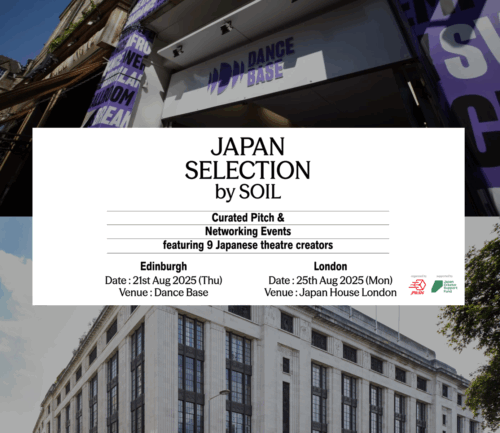Interview:
Inside Japan Selection
The Traffic Signal Bug — Theatrical Company Aokirimikan
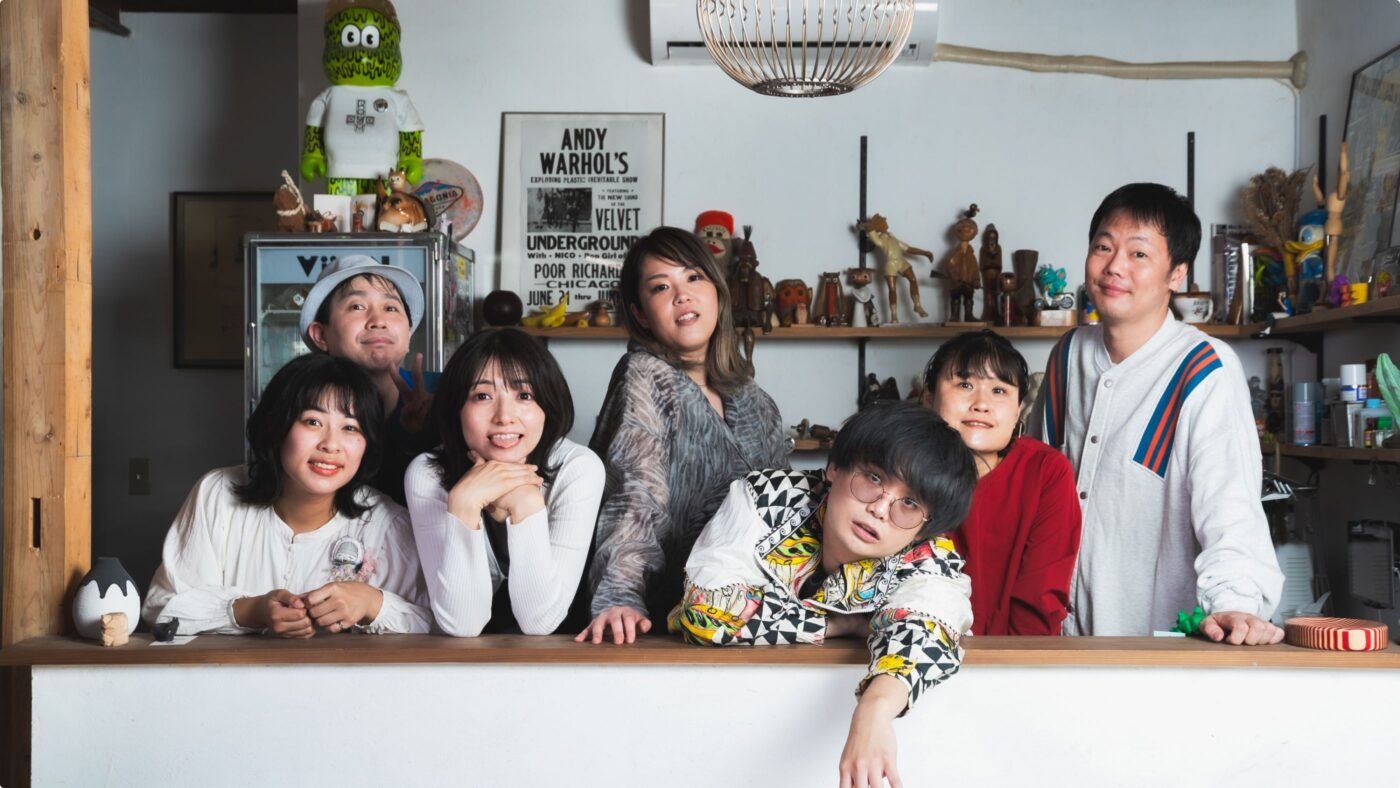
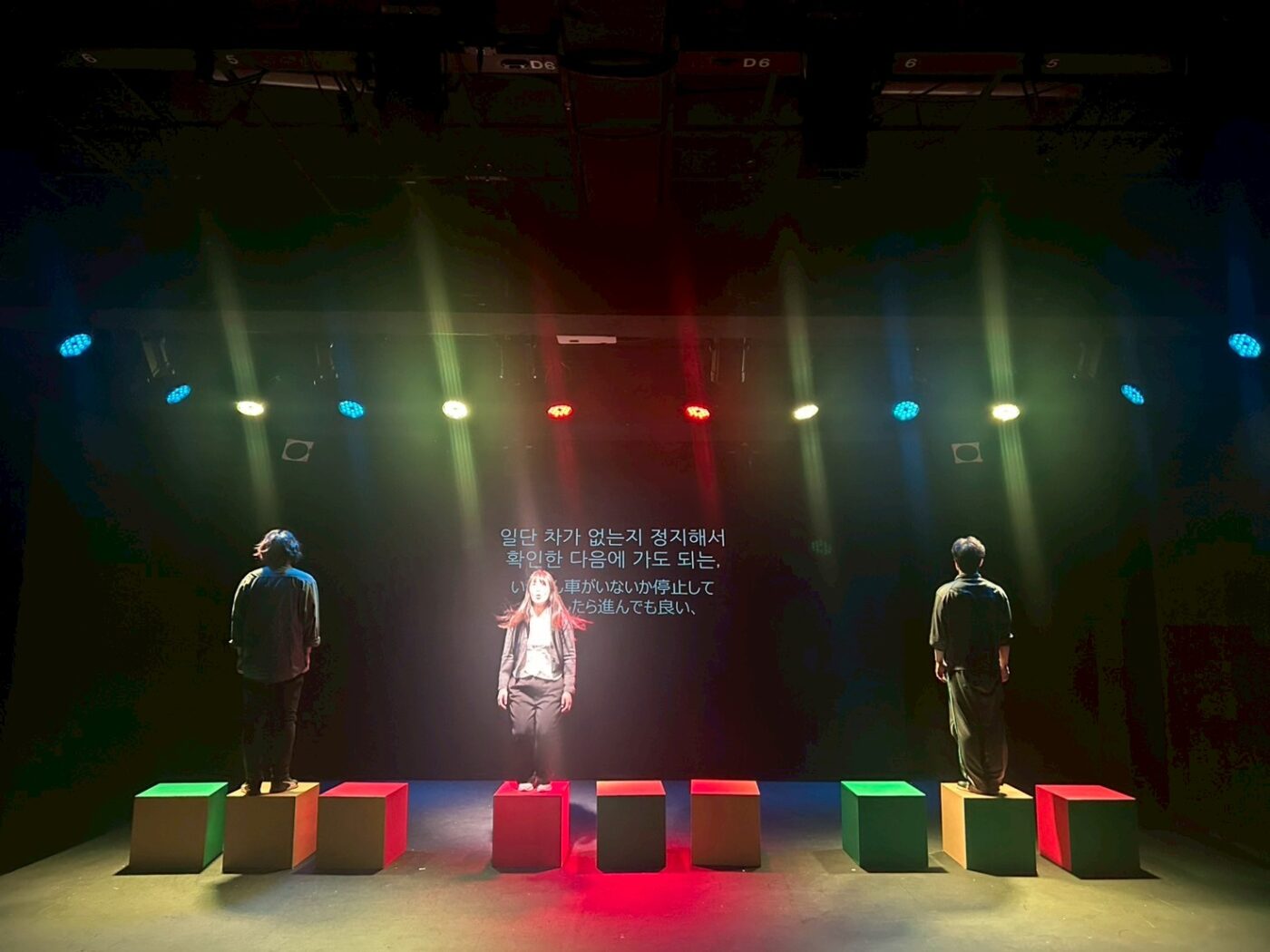
First premiered in 2009, The Traffic Signal Bug is a 20-minute short play by Theatrical Company Aokirimikan, written and directed by Yuki Kanome. The play features three characters—two men and one woman—and uses only three coloured boxes for props (red, yellow, and blue) modeled after traffic signals. As the performers move between these boxes, they express the shifting currents of human emotions, particularly romantic ones.
Yuki Kanome, known for her comedic sensibilities, often draws on themes of love in her work. In this piece, The Traffic Signal Bug, she cleverly links the colour-coded signals to emotional states in relationships. But since human emotions and consciousness defy mechanical categorization, the interplay between visual metaphor and narrative absurdity gives rise to a uniquely theatrical humour.
The Japanese title Shingō no Mushi is rich in wordplay. The character “虫” (mushi) can mean “obsession” or “being absorbed in”, as seen in expression such as “bookworm“, subtly mocking how people obsess over rules. At the same time, it incorporates the homophone “無視” (mushi), which means “to ignore,” hinting at the act of ignoring traffic signals—and perhaps emotions. This double meaning in the title sets the stage for a satirical and symbolic comedy.
A year before creating this piece, Kanome had already begun exploring a non-verbal theatrical language that matched inner emotional states with symbolic stage design, rather than through narrative or dialogue. Her efforts were recognized in Tokai’s regional short play competition Gekioh, which she won for four consecutive years. The Traffic Signal Bug was her entry in her second year, refining ideas from earlier successes. Since audience response plays a key role in the competition’s outcome, the piece was originally conceived as a “play to win”—funny, clever, and immediately engaging.
Fast-forward to 2024: the play was revived in South Korea through a collaborative project with local theater artists. In the present day, where notions of gender and relationships have shifted, the new version has matured into a poignant reflection on individual agency. The ending is now more vivid leaving a more poignant call to consider how we live—as human beings, not just as lovers.
Interestingly, during the production in Korea, the Japanese cultural trait of “following the rules,” even in relation to traffic signals, became a topic of discussion. While some aspects were seen as uniquely Japanese, many shared sentiments emerged. Emotional ambiguity, conflicting feelings, and behavioral contradictions—these are part of being human everywhere. The play thrives in that tension, making it a culturally resonant yet universally relatable piece.
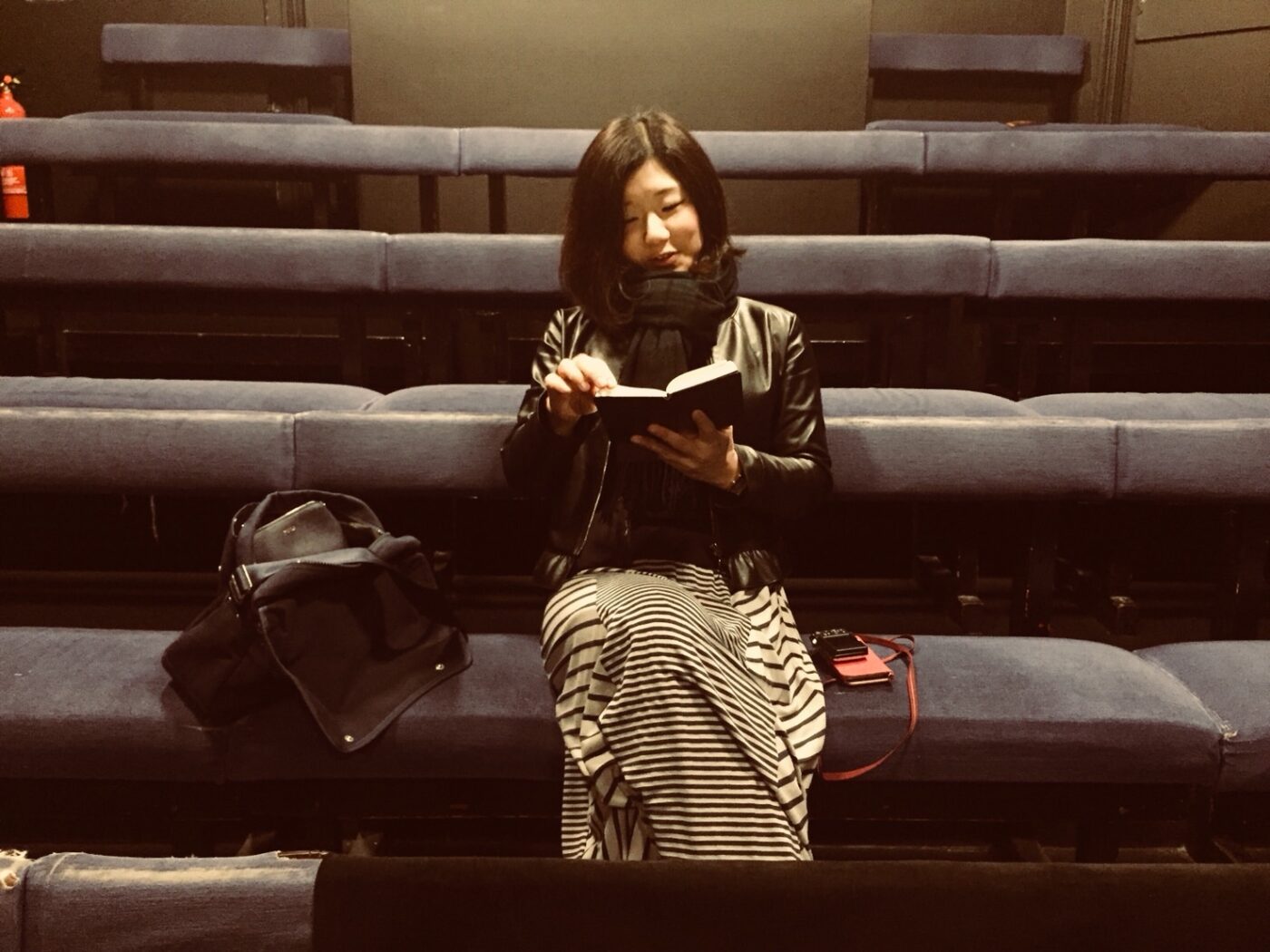
The playwright and director. Kanome, originally from Aizuwakamatsu in Fukushima Prefecture, began her journey into theater in high school and continued performing at Nanzan University in Nagoya, where she later founded Theatrical Company Aokirimikan in 1998. Transitioning from a student-led troupe to a full-fledged professional company is not uncommon in Japan, and some university theater clubs are even regarded as elite institutions.
The company’s debut performance, For Whom the Bell Tolls, was staged in 1999. From early on, Kanome was recognized for her strong sense of structure and warm comedic sensibility. With her charm and the company’s appealing ensemble, Aokirimikan steadily developed into a theater company with the top box office draw in the Tokai region. Currently, it has 24 members and stages two major productions each year, in addition to national tours and creatively themed special productions.
The company has earned numerous accolades, including the Grand Prize at the Theater Green Festival (2003), the Grand Prix at the Aichi Arts Theater Drama Festival (2007 and 2010), and others. Kanome herself won the New Playwrights Award from the Japan Playwrights Association in 2010 for This is Where Utopia Ends, as well as the Excellence Award at the Young Directors Competition hosted by the Japan Directors Association in 2009 and 2010. She has been extremely busy with commissioned works for external productions regardless of theater or project scale, including Ryuzanji Company’s Love and Lies, the Osomatsu-san on STAGE~SIX MEN’S SHOW TIME~ musical series and NHK’s 45th anniversary project, the stage version of Middle School Diary. She currently serves as a board member of the Japan Playwrights Association and executive director of the Japan Directors Association, contributing to the theater community through mentorship and leadership.
While Kanome’s early works were more traditional well-made plays, her winning streak at Gekioh marked a turning point. Post-2008, the company leaned into experimental, visually driven comedies. Despite initial concerns that this might alienate some audiences, the risk instead cultivated a loyal fanbase. Today, their work balances structural experimentation with an increasingly sharp eye on contemporary society.
According to actor and producer Masato Matsui, the company’s ethos is simple: “Do what feels most exciting right now.” Their constant evolution reflects changing interests, but their identity as a comedy troupe remains unchanged. Kanome has never restaged a past work and has written nearly 50 new plays. In recent years, her comedies have taken on more complex, even bittersweet tones, embracing the messy contradictions of being human.
Kanome consciously shifts her style, and as the company expands abroad, this could spark their next artistic evolution.
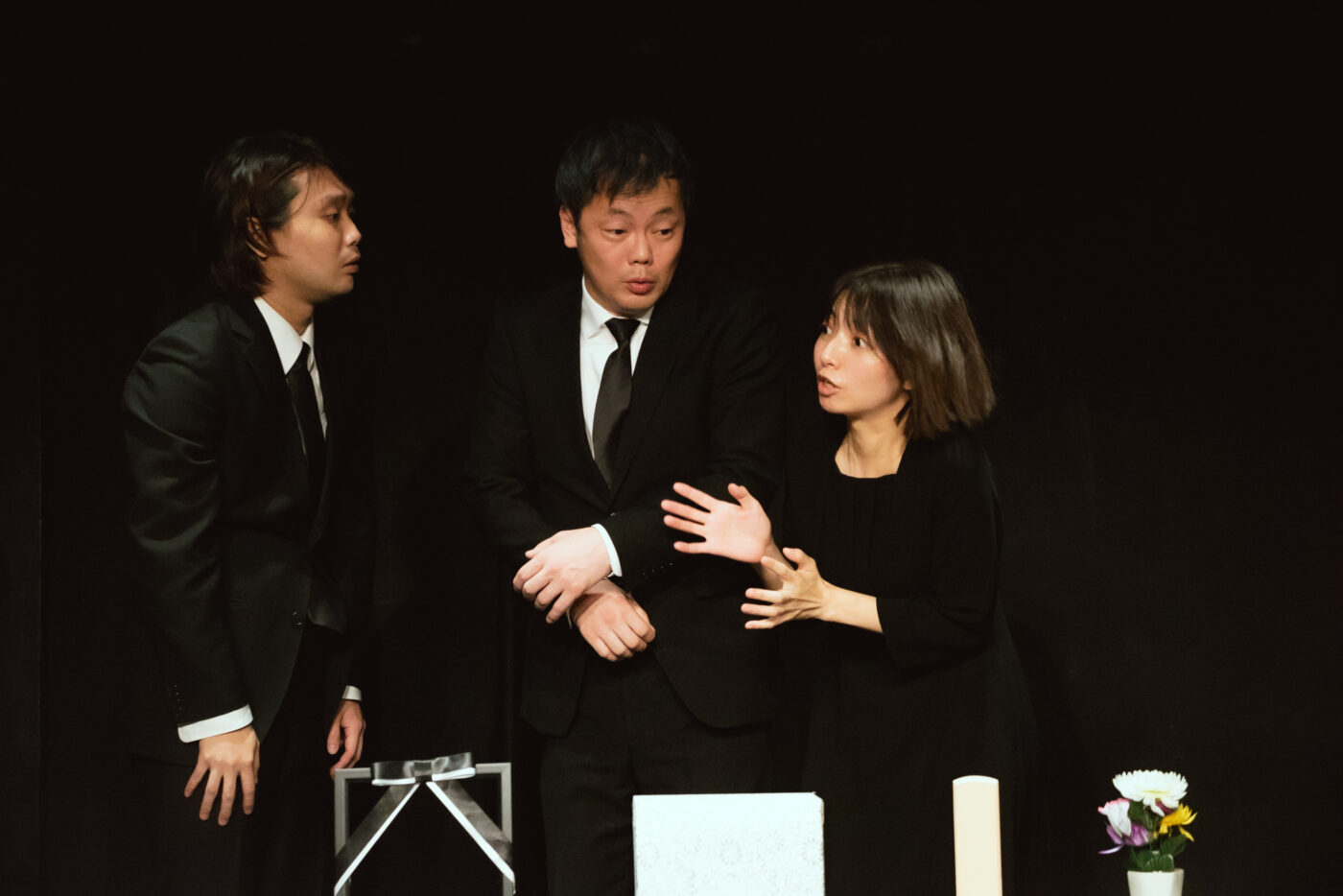
The company’s international trajectory began in 2018, when Kanome was selected for the 2017 Agency for Cultural Affairs Short-term Overseas Training Program for Emerging Artists and studied in London, England in March 2018. At the time, overseas expansion wasn’t yet a shared company goal. Matsui’s resolve to pursue international collaboration grew in response to the Russian invasion of Ukraine—not out of political anxiety, but from the human sorrow of witnessing one people bomb another. As a theater artist from Japan, the only country to suffer nuclear bombing, he felt compelled to use culture as a tool for peace and grassroots exchange. Reflecting on Kanome’s London experience, he recommitted to her vision. In 2024, the company participated in the Gumi Asia Theatre Festival in South Korea, premiering Kanome’s new play My Mother Died Today.
Matsui’s primary goal abroad is not merely to present existing works, but to co-create with local artists. He also advocates for bilingual productions that blend Japanese with the local language. He is open to adapting scripts for cultural resonance, believing this fosters deeper mutual understanding and curiosity about Japan.
With its compact cast and minimalist set, The Traffic Signal Bug is ideal for overseas touring—cost-effective and logistically manageable. Though Matsui encountered challenging conversations about peace during the Korean collaboration, he values those difficult exchanges as part of genuine international dialogue and he considers it a gain to have personally learned about the harsh realities that exist between the two countries. He believes both short and full-length plays can yield meaningful cultural outcomes.
The company plans another residency in Gumi, Korea, in 2025 and will host their Korean collaborators in Nagoya that September, continuing their creative exchange.
Through SOIL, Matsui hopes to build a robust international network and learn practical strategies for global collaboration. He is also seeking advice on how to access showcase opportunities, such as theater festivals, which are especially valuable for promoting short plays.
Since the nine works selected for SOIL are described as forming one team, Matsui is conscious of promoting other theater companies and works, as well as Japanese culture as a whole. Matsui is also committed to promoting not only his own company but also other Japanese artists and cultural expressions. Drawing on Japan’s Basic Act on Culture and the Arts, he earnestly considers what theater can do to bring about world peace and works toward that goal. His hope is that someday the term “international co-production” will become obsolete—when creating theater with anyone, anywhere in the world, becomes simply the norm.
Original Text by Yumiko Kojima
Translated by SOIL Team
